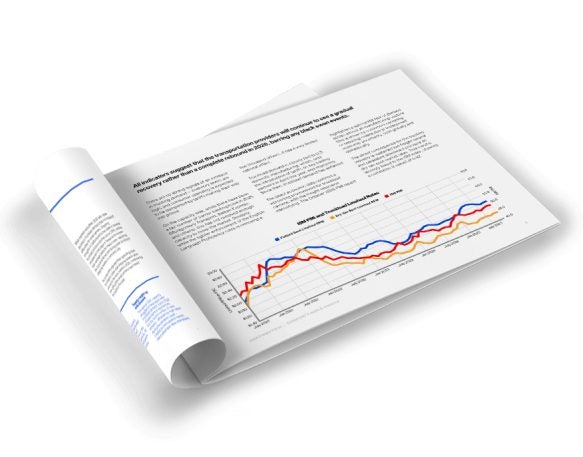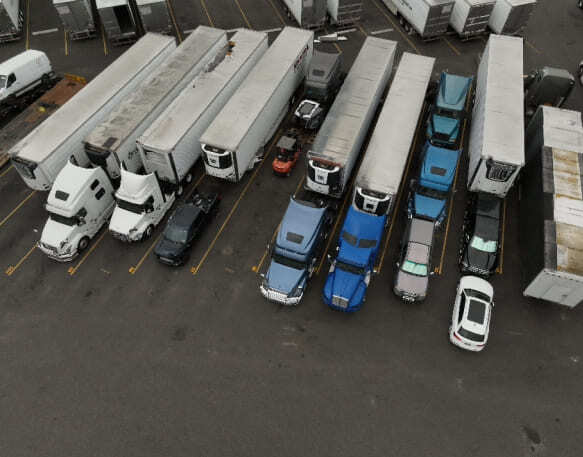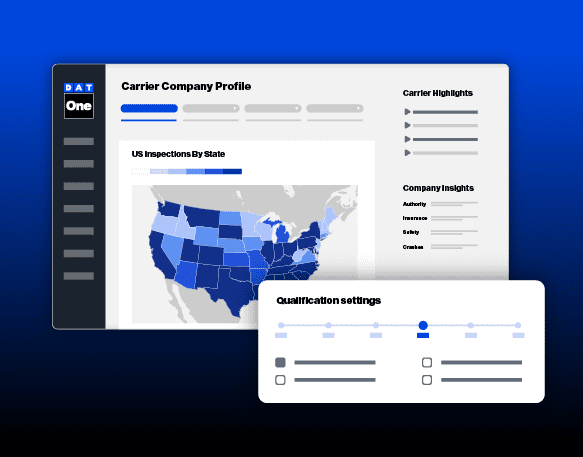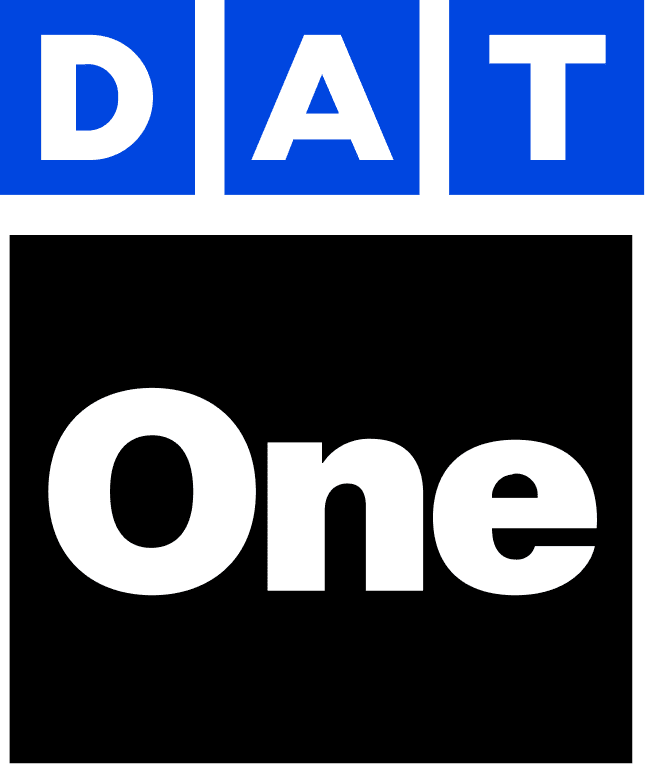
8 Steps to Get Your Freight Broker License
To successfully launch a freight brokerage business, you must first secure your freight broker license. Following the correct steps not only saves time and money but also helps you set up a strong foundation. In this guide, we’ll walk you through each step, from covering costs to how long it takes to get your license and what you need to know to launch your brokerage successfully. With the right approach, you’ll be well-prepared to start your journey with confidence.
Ready to get your freight broker license? Here’s where to start.
Getting your freight broker license isn’t always intuitive. The steps to becoming a licensed freight broker may seem cumbersome and time-consuming—and, for a freight broker just starting out, they also come with a price tag. Making the most out of your freight brokerage business means you’ll need to invest upfront in registration fees and back-end office expenses, plus a transportation management system to keep track of your business.
At DAT, we offer a wide range of services for your freight brokerage business—from assistance in getting your brokerage authority to TMS services and more. At each step of the process, our freight brokerage packages can help you to understand where your business needs to go.
Before you invest in brokerage services, it’s important to know the steps necessary to become a freight broker. With a good understanding of brokerage requirements, you can set up a successful business quickly and efficiently.
What is a freight broker?
Freight brokers are essential in transportation, helping keep goods moving across the country. If you’re drawn to the transportation industry, becoming a freight broker offers a rewarding career path with plenty of growth potential.
Simply put, freight brokers connect shipping companies with carriers, serving as a bridge between those who need to transport freight and those who can move it. With the right connections and tools, you’ll link trucking companies with freight providers, coordinate with dispatchers and third-party logistics providers (3PLs), and help streamline transportation across the industry.
Freight brokers act as intermediaries between shippers and carriers, helping match loads with available trucks. While you’re not hauling the freight yourself, you play a key role in ensuring it gets from point A to point B efficiently. Because you’re often working on behalf of shippers, your primary responsibility is to secure reliable carriers and competitive rates that meet your customers’ needs. At the same time, building strong relationships with carriers is essential—many brokers develop trusted networks they return to again and again.
While brokers may seem similar to dispatchers or third-party logistics providers (3PLs), their roles differ in key ways. Dispatchers typically represent carriers, helping them find loads and manage schedules. 3PLs, on the other hand, often take a more hands-on role in managing a shipper’s supply chain, including warehousing and long-term contracts. Freight brokers tend to operate more transactionally, focusing on matching loads with trucks as efficiently as possible. In most cases, brokers are independent business owners contracted by shippers to move freight.
If you’re looking for an entrepreneurial path in a dynamic industry, becoming a freight broker might be the perfect fit.
What is a freight broker license?
A freight broker license is an official certification required to legally operate as a freight broker in the U.S. This license, granted by the Federal Motor Carrier Safety Administration (FMCSA), allows you to connect shippers with carriers and oversee freight movement on their behalf. Securing this license is vital for anyone looking to enter the freight brokerage industry, ensuring compliance with federal regulations and establishing credibility in the marketplace.
The cost of obtaining a freight broker license typically includes a few fees you should be aware of. The primary cost is the FMCSA application fee, which is currently $300 and non-refundable. However, you’ll also need a surety bond (usually around $75,000), which may have its own associated costs based on your credit. Additional expenses may include insurance, registration fees, and business setup costs. Altogether, the freight broker license cost can vary widely, but with a clear understanding of these requirements, you’ll be ready to take the next step.
How to become a broker for trucking in 8 steps
1. Licensing & federal regulations
Freight broker training is all too often overlooked. Many freight brokers assume that the only important steps in becoming a freight broker are the licensing requirements—but a license is only good if you know how to use it. Before you even begin to get your authority and registration, it’s wise to take freight broker classes.
Even though broker training is yet another upfront cost, it’s an important investment in the future of your brokerage business. The truth is, brokers have a high turnover rate—and much of this is due to lack of experience. DAT’s special partnership with Freight 360 means you can access a complete freight broker course through the DAT network. Broker training helps to ensure that you’re prepared before entering the brokerage industry, so your business can get off to a great start.
2. Set up your business basics
Freight brokerage is a business, and starting any small business requires planning. One of the most appealing aspects of becoming a freight broker is the independence associated with running your own enterprise.
Before you start submitting your registration requirements, you’ll need to decide on your business model. Will your business be a sole proprietorship or a partnership? Will you register as an LLC or as another business entity? Establishing your business’s structure is an important component of your business plan. Freight broker training courses can help you to understand how to create an effective business model. If you want more legal advice, ask a local business attorney which business model would best suit your goals. Once you have a clear idea of what your business will look like, you can start working on getting a freight broker license.
3. Apply for authority for brokers
All brokers need authority from the federal government. Just like carriers and shippers, brokers need to register with federal agencies to ensure they’re complying with all the legal requirements for a brokerage business. Authority helps ensure that you’re safe, qualified, and impartial.
As a broker, you’ll need an MC number and DOT number, both of which are issued by the U.S. Department of Transportation. If these numbers sound familiar, it’s because truckers also need MC and DOT numbers for registration. In addition to these requirements, you’ll also need an freight forwarder (FF) number from the FMCSA.
Getting authority usually takes four to six weeks, so time is of the essence. When you’re starting your brokerage business, completing all the authority requirements correctly and quickly allows you to save time and money. To help with these requirements, DAT Authority provides experts who can fill out and file your paperwork for you.
4. Designate process agents
Process agents (also known as BOC-3 process agents) are legal representatives that act as a type of legal insurance for brokers. In case you get sued by one of your clients, you’ll need a designated process agent working for you in the state where your legal process takes place. Because process agents work on a statewide basis, you’ll need to designate a process agent in every state where you’ll be doing business. In practice, that means you’ll need an agent in every state.
Designating process agents in every state isn’t as complicated as it sounds. Plenty of trucking authority services, like DAT Authority for Brokers, help you to get blanket coverage from process agents around the country—so you don’t have to worry about designating them individually. After you’ve designated agents, you’ll need to submit your BOC-3 form to the FMCSA.
5. Secure a bond or trust fund
Like most new businesses, getting insurance is an important part of your brokerage business. On a federal level, you’re required to have either a surety bond worth more than $75,000, or a trust fund for your company. These requirements help to ensure you can pay any broken or faulty contracts you might have. Like several of the other requirements, you’ll need to submit proof of your bond or trust fund to the FMCSA.
6. Get registered with UCR
UCR registration is technically a state-level requirement, so you’ll need to file it through your state Department of Transportation instead of the federal government. However, UCR registration is standardized across the country, meaning you’ll need to submit the same UCR papers and fees no matter where you live. It’s important to note that even states that are “non-participating” still require UCR registration.
With the UCR, you’ll get specialized UCR plates that show you’ve completed your requirements. UCR is an annual process, meaning your UCR plates need to be renewed once a year. Failure to comply with UCR can result in fines, so it’s important to keep track of your UCR registration. DAT Authority helps you to fill out UCR registration requirements and offers professional consultants standing by to help with any questions you may have.
7. Finish state-level requirements
Some states require additional registration. Depending on the state you live in, you may need to complete special paperwork for your state-level DOT. No matter where your home base is, you’ll need to investigate what requirements may be necessary for operating as a broker. These requirements aren’t necessarily brokerage requirements—you will also need to understand state-level business regulations.
Before you can run a small business, learning your state registration and tax requirements is a must. Like the other steps in this process, DAT is here to help. DAT Authority for Brokers offers guidance in filling state-level brokerage requirements—all you need to do is file the paperwork.
8. Set up your back-end management
You’re nearly ready to start brokering freight! Now it’s time to organize the behind-the-scenes setup of your business. Start by answering key questions: Where will you operate from? What essential tools and services, like computers, reliable internet, and phone lines, will you need? If you plan to hire, consider setting up a payroll system to streamline employee management.
You’ll also need to determine how you’ll find freight and communicate with carriers and shippers. Load boards and management software can be invaluable for this, offering tools like search filters, load match alerts, and direct messaging to help you connect with clients efficiently. Look for an integrated platform that combines load matching with back-office management tools, so you can easily oversee your operations, communicate with clients, and keep everything in one place.
How long does it take to get a freight broker license?
The timeline for obtaining a freight broker license can vary based on factors like preparation time, application processing, and securing necessary documentation. On average, it takes about 4 to 6 weeks to complete the process. This includes gathering paperwork, filing your application with the FMCSA, and securing a $75,000 surety bond. However, some brokers may complete the process faster if they have their documents and finances ready.
Keep in mind that certain steps, like applying for the surety bond and obtaining your broker authority, might take additional time, depending on processing speeds. Being organized and thorough can help you avoid delays and get your freight broker license as efficiently as possible.
Wrapping up your path to a freight broker license
Securing a freight broker license is a straightforward process when you know the steps. From understanding costs to meeting legal requirements, each stage prepares you to build a successful brokerage. By following the eight steps we outlined above, you’ll set a solid foundation for your business, connect effectively with shippers and carriers, and navigate the freight industry with confidence. With your license in hand, you’re ready to launch a rewarding career as a freight broker.
FAQs
A few things you might be asking yourself
On average, it takes about 4 to 6 weeks to obtain a freight broker license. This includes application processing by the FMCSA and securing required documents like a $75,000 surety bond.
The main costs include a $300 application fee to the FMCSA and a surety bond, which is typically around $75,000. Additional costs may involve insurance, state fees, and business setup expenses.
Freight brokers generally need contingent cargo insurance. This coverage protects brokers if a carrier’s cargo claim is denied, ensuring shipment coverage in unforeseen events.
DAT Authority simplifies the broker licensing journey, offering everything you need to get started. With DAT, you gain access to powerful load boards, user-friendly TMS software, and connections to trusted partners for training and surety bonds. We handle the heavy lifting, providing the tools and support to launch your brokerage smoothly and grow it with confidence.
While not required, broker training can be highly beneficial. Training programs cover industry standards, federal requirements, and business strategy, making it easier to start and succeed in brokerage.
Start your freight broker business off on the right foot!
Becoming a freight broker is more than just getting training and establishing your business’s structure. You also need to meet many state and federal requirements, which means dealing with lots of paperwork.
Don’t feel like wading through it yourself? Sign up for DAT Authority today, and we’ll handle the process for you!
Relevant Products



RateView Analytics
Actionable past, present, and future rate insights you can rely on for smarter strategic.




